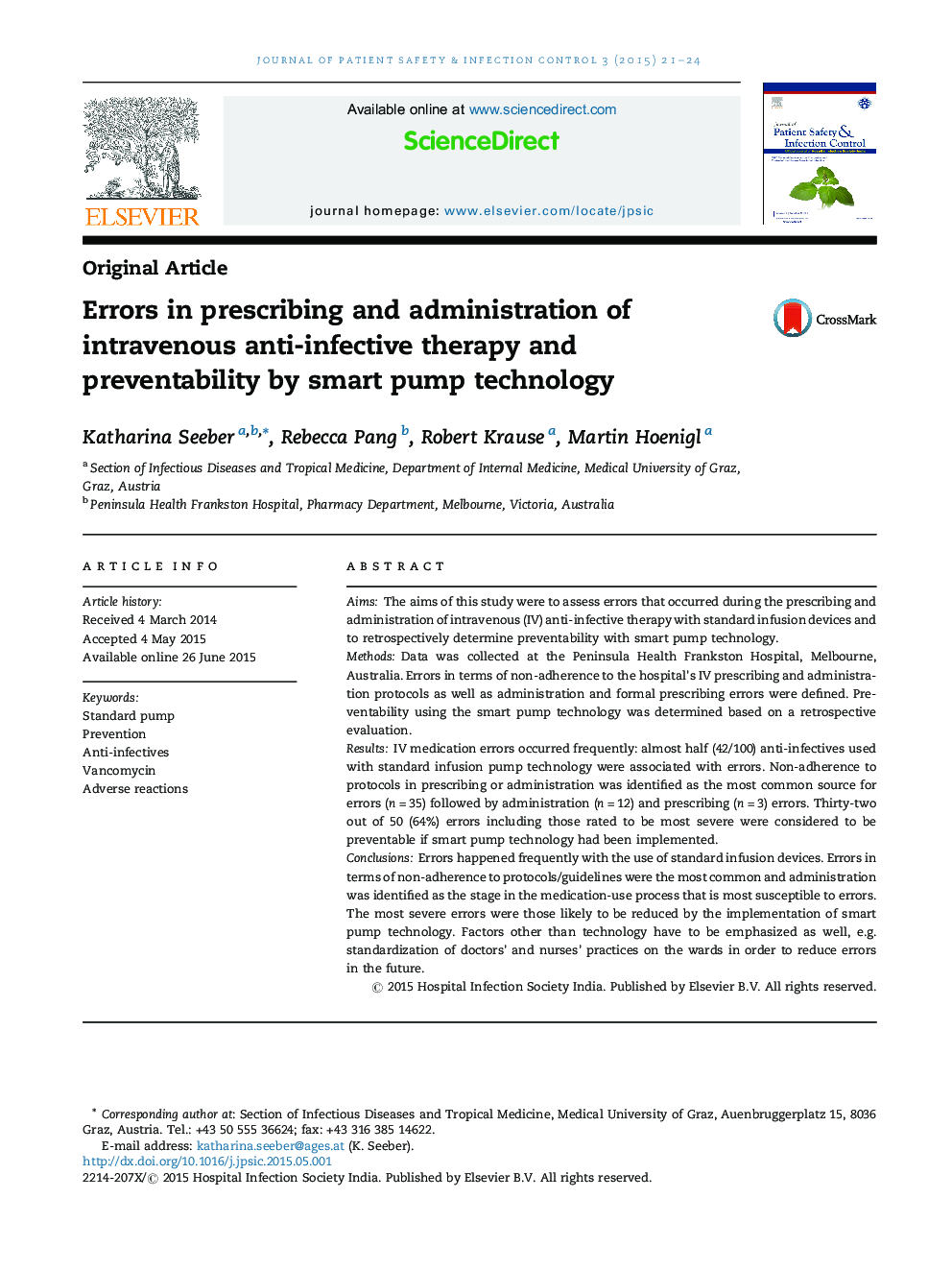| Article ID | Journal | Published Year | Pages | File Type |
|---|---|---|---|---|
| 3406545 | Journal of Patient Safety & Infection Control | 2015 | 4 Pages |
AimsThe aims of this study were to assess errors that occurred during the prescribing and administration of intravenous (IV) anti-infective therapy with standard infusion devices and to retrospectively determine preventability with smart pump technology.MethodsData was collected at the Peninsula Health Frankston Hospital, Melbourne, Australia. Errors in terms of non-adherence to the hospital's IV prescribing and administration protocols as well as administration and formal prescribing errors were defined. Preventability using the smart pump technology was determined based on a retrospective evaluation.ResultsIV medication errors occurred frequently: almost half (42/100) anti-infectives used with standard infusion pump technology were associated with errors. Non-adherence to protocols in prescribing or administration was identified as the most common source for errors (n = 35) followed by administration (n = 12) and prescribing (n = 3) errors. Thirty-two out of 50 (64%) errors including those rated to be most severe were considered to be preventable if smart pump technology had been implemented.ConclusionsErrors happened frequently with the use of standard infusion devices. Errors in terms of non-adherence to protocols/guidelines were the most common and administration was identified as the stage in the medication-use process that is most susceptible to errors. The most severe errors were those likely to be reduced by the implementation of smart pump technology. Factors other than technology have to be emphasized as well, e.g. standardization of doctors' and nurses' practices on the wards in order to reduce errors in the future.
